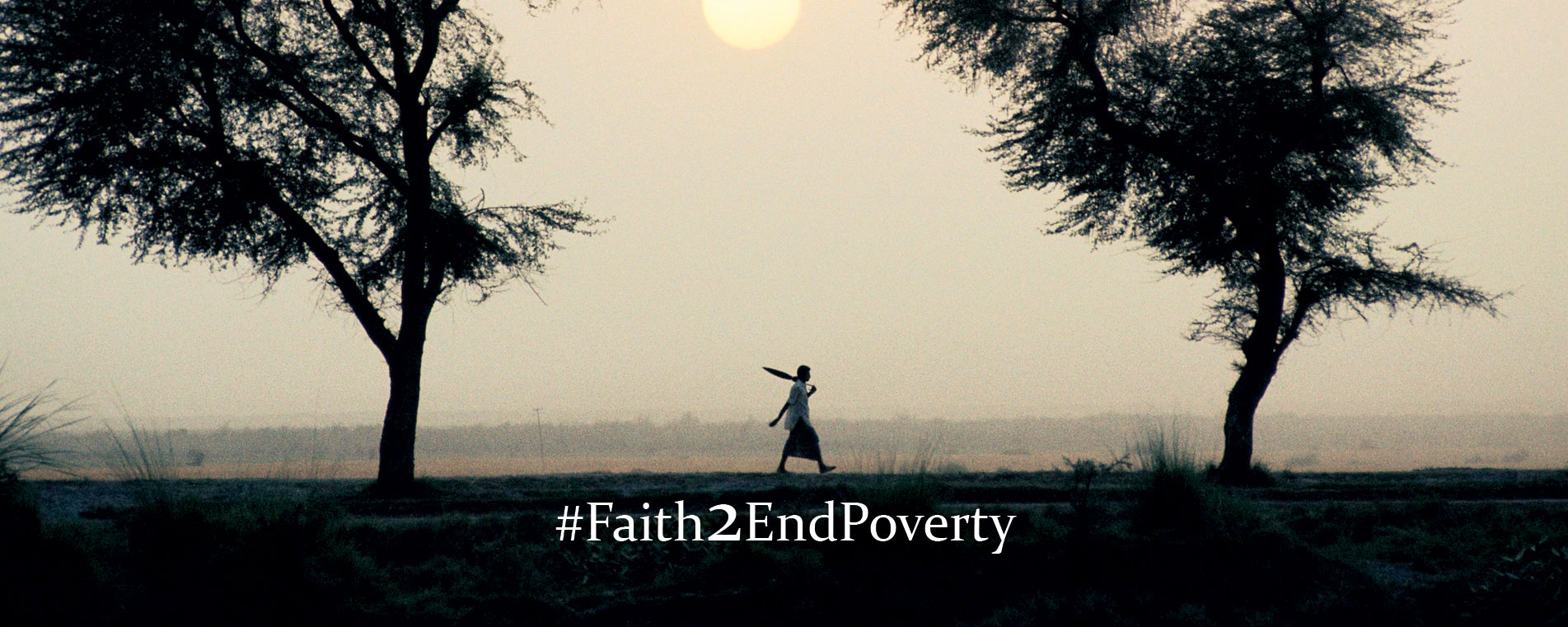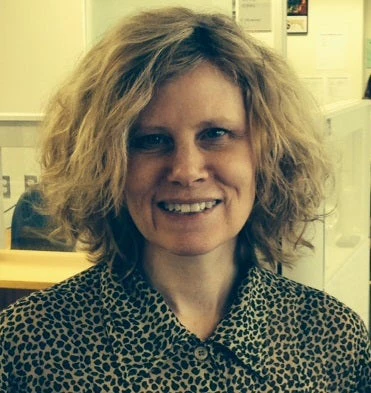
The World Bank Group and faith-based organizations share something in common – fighting poverty. Now, they’re joining forces to do it. More than 30 leaders representing Bahai, Buddhist, Christian, Hindu, Jewish, Muslim, and Sikh organizations formally expressed support for ending extreme poverty by 2030 – a goal backed by the World Bank Group’s 188 member countries.
Their joint statement, “Ending Extreme Poverty: A Moral and Spiritual Imperative,” released April 9, called for an end to the “scandal of extreme poverty” and said they would use their “voices to compel and challenge others to join us in this urgent cause inspired by our deepest spiritual values.” They added they would commit to hold “all levels of leadership accountable – public and private, domestic and international.”
“Nothing has been more exciting to us in the last year than the collection of faith leaders who have drafted and endorsed this moral imperative statement, recognizing that now it is possible to end extreme poverty. We’re going to work together to do it,” said Ruth Messinger, president of American Jewish World Service.
The Rev. Nicta Lubaale, General Secretary of the Organization of African Instituted Churches, added that there are adequate resources in Africa and around the world to end extreme poverty. “This is the moment for us to dismantle the foundations of poverty,” he said.
Describing the moral imperative statement as an “inspirational document,” World Bank Group President Jim Yong Kim welcomed it as an important step in achieving the poverty goal set by the World Bank Group in 2013.
“The moral imperative can help drive the movement to end poverty by 2030 by inspiring large communities to act now and to advocate for governments to do the same. These commitments from religious leaders come at just the right time – their actions can help hundreds of millions of people lift themselves out of poverty,” said Kim, who will join several of the Moral Imperative’s supporters at an April 15 webcast event a few days before the World Bank Group-IMF Spring Meetings.
Kim acknowledged that ending extreme poverty by 2030 is an extremely ambitious goal, but he argued it can be achieved, particularly in light of remarkable progress in reducing poverty in the last two decades. The number of people living in extreme poverty, defined as less than $1.25 a day, has been cut in half since 1990.
Ending extreme poverty in the next 15 years will require two things, said Kim: gathering evidence on what works to reduce poverty and using it to implement critical initiatives; and “just as important, we need to build a movement to end poverty.”
Kim added: “I believe that some of the most important leaders in the movement to end extreme poverty will be people of faith, people who are motivated fundamentally to help the most vulnerable among us.”
To that end, the Bank Group reached out to the faith community and brought leaders of faith-based organizations together in February to draft the moral imperative statement. Globally, more than 8 in 10 people identify with a religious group, according to a 2012 Pew research study, and religion plays a role in the forming the values, ethics, and world view of the majority of people on Earth.
Helping the poor is a central tenet of most if not all religions – and faith-inspired organizations fight poverty all over the globe. Those who endorsed the Moral Imperative statement lead major organizations. For example, H.H. Swami Chidanand Saraswatiji leads one of India’s largest interfaith spiritual institutions, Parmarth Niketan. Dr. Carolyn Woo is CEO and president of Catholic Relief Services, reaching 100 million people in nearly 100 countries. Dr. Mohamed Ashmawey is president of Islamic Relief Worldwide, and leads the Islamic relief family in more than 40 countries.
The Bank Group is a secular, multilateral institution that does not place any religion over another, or favor religious organizations over any other stakeholder group or development partner. However, it has studied, surveyed and collected data on services provided by faith-based organizations in developing countries, in areas such as education, health and land restoration.
The Bank’s Faith Initiative hopes to develop the partnership with religious leaders and organizations and strengthen constructive dialogue, collaboration, and evidence around the role and contribution of faith-inspired organizations in development. “If we ignore religious communities and organizations, we do so at our own peril because these could be potential champions and allies for what the Bank is doing, particularly given the amount of common ground there is with many faith traditions who also care deeply about poverty,” said Adam Russell Taylor, who leads the Faith Initiative at the Bank. He noted that faith-based organizations play a “huge role” in providing vital services, such as health, education, social protection, and, increasingly, peace-building.
Among the Faith Initiative’s plans is a conference in July on “Religion and Sustainable Development: Building Partnerships to End Extreme Poverty,” co-sponsored by BMZ, USAID and DFID (the German, U.S., and British development agencies) in partnership with the Joint Learning Initiative on Faith and Local Communities.
Learn more about the moral imperative at faith2endpoverty.



Join the Conversation